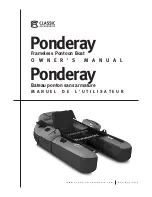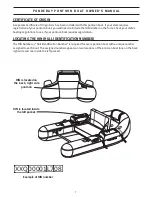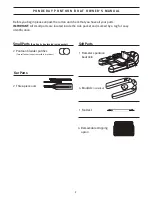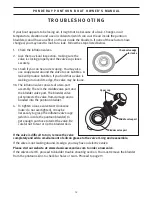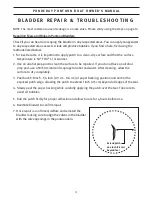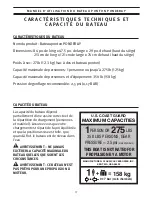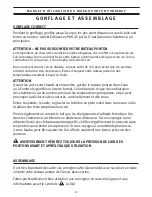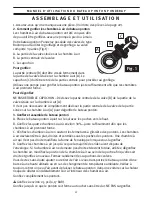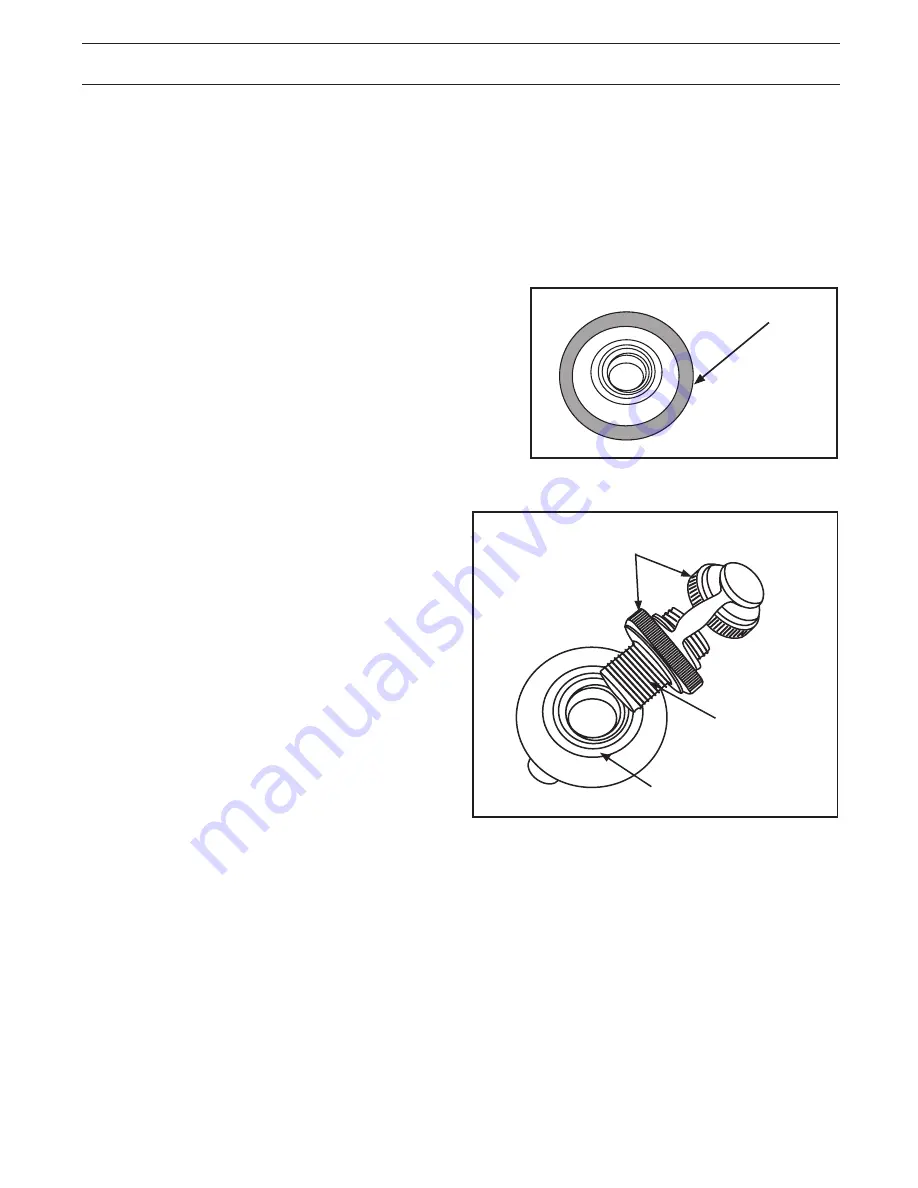
12
P O N D E R A Y P O N T O O N B O A T O W N E R ’ S M A N U A L
1
. Check the inflation valves.
2
. Give them a visual inspection, making sure the
valve is closing properly and the valve cap closes
securely.
3
a. Check if you can hear air escaping. You may also
use soapy water around the valve to see bubbles. A
leak will produce bubbles. If you find that a valve is
leaking air around its edge, the valve may be loose.
3
b. The inflation valve consists of a two-part
assembly. There is the middle valve part and
the bladder valve part. The bladder valve
part protects the valve from damage and is
bonded into the pontoon bladder.
4
. To tighten a loose valve twist clockwise
(note: do not overtighten). It may be
necessary to grasp the inflation valve cage
(which is inside the pontoon bladder) to
get enough purchase to twist the valve. Be
careful not to tear or rip the bladder skin.
If the valve is difficult to turn, remove the valve
completely and add a small amount of silicon grease to the valve O-ring and reassemble.
If the valve is not leaking around its edge, you may have a defective valve.
Please visit our website at: www.classicaccessories.com to order a new valve.
If the valves are OK, proceed to bladder trouble shooting section. You must remove the bladder
from the pontoon skins to check for holes or tears. Proceed to page
13
.
If your boat appears to be losing air, it might not be because of a leak. Changes in air
temperature, elevation and use on cold water (which can cool the air inside the pontoon
bladders) can all have an effect on the air inside the bladders. If none of these factors have
changed, you may need to look for a leak. Follow the steps listed below.
T R O U B L E S H O O T I N G
Check valve edge
for leaks
Upper cap
Middle valve part
Bladder valve part


